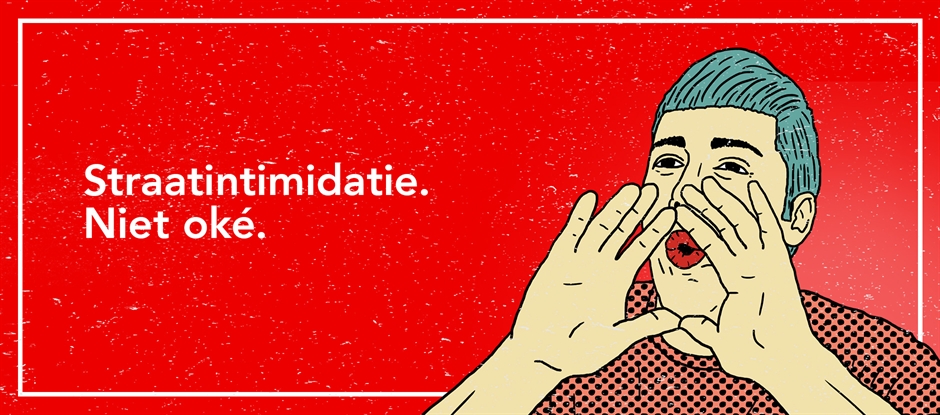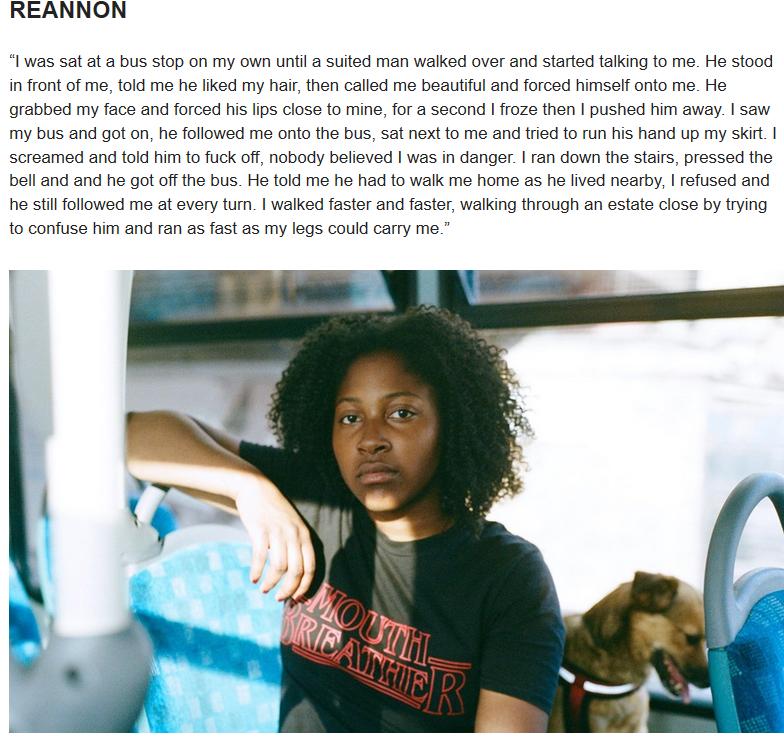I have been through a lot of harassment since I moved to the UK. I live in a multicultural city with various kinds of people therefore I feel like everyone should be respected no matter what they wear or look like. However, this isn’t the case. I am 18 and I have been harassed/cat called etc since I was about 14. No matter what I was wearing, whether it was a big parka coat in winter showing nothing but my face or a dress (below my knees) showing a bit more skin in the summer because I would feel scared to go out in something short.
I have not been alone with this situation as my best friend experienced the same thing and so did probably 95% of girls in this area. The men that often stop or say things are normally over 25, sometimes even nearer 30 staring with a ‘hello’ or blocking my way in which direction I am trying to walk to. I do not respond any times when I’m alone because I’m always scared and I know that I won’t have the strength to get away from a grown man or someone in a vehicle.
Today was a nice hot day and I experienced the most shocking situation ever in my life. A man no older than 20 had been riding on a bike on a nearby road where me and my best friend were walking to a shop and he started with a ‘hello’ just as most do. However we didn’t reply so he got angry and tried to block our way by stopping us with his bicycle. He asked us if we smoke. My friend replied ‘no’ and then we carried on walking. Then he started to follow us and ask us our age and when we didn’t reply he started to shout at us.
I could not hold back my anger no longer so I started to talk back which then resulted in me in the heat of moment shouting back at him. Luckily I walked away but he said to my friend that if I was a man he would have ‘stabbed’ or ‘punched’ me since he ‘owns’ the street. Honestly, that has been the worst experience of my life- it’s like what happens in movies because he looked dangerous and I knew he wasn’t joking as my area is quite dangerous and there is a lot of stabbing stories going on in this moment. In fact on the same day, a person was stabbed two streets away in broad daylight where the harassment had taken place.
This had made me so fearful and angry that I cannot do anything about it. Every time I go out I face minor situations like this roughly 3-4 times when I’m casually walking on the street. I feel like the anger is actually building up and today I could not control it and who knew the guy might have hurt me but luckily he didn’t.
The saddest part about it is there were people around us that saw the guy was trying to talk to us and no one even tried to help us. I feel really frustrated and scared that this will happen again so I will not risk going out again. Most importantly, never alone. I just sometimes wish I was a man so I wouldn’t ever get to experience such disrespect from people. Unfortunately you don’t choose your gender.
– Anonymous
Location: Handsworth, Birmingham, UK
Need support? Call the toll-free National Street Harassment hotline: 855-897-5910
Share your street harassment story for the blog.
See the book 50 Stories about Stopping Street Harassers for ideas.



